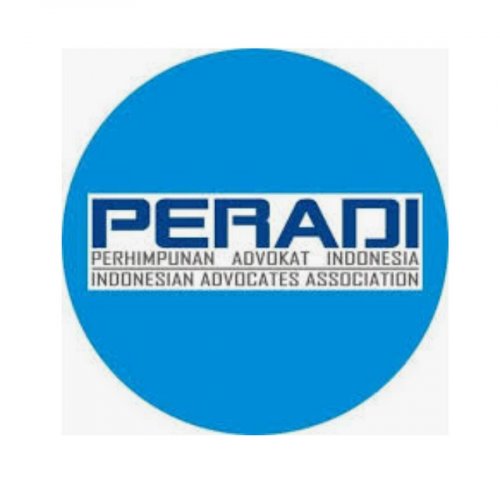Best Corporate & Commercial Lawyers in Jakarta
Share your needs with us, get contacted by law firms.
Free. Takes 2 min.
List of the best lawyers in Jakarta, Indonesia
About Corporate & Commercial Law in Jakarta, Indonesia
Corporate & Commercial law in Jakarta, Indonesia, covers a wide array of legal topics related to doing business. These areas include the formation and operation of companies, mergers and acquisitions, joint ventures, investment regulations, commercial contracts, intellectual property rights, company licensing, real estate transactions, employment matters, and dispute resolution. Jakarta, as the nation’s capital and commercial heart, serves as the base for many domestic and international businesses, making corporate and commercial legal services essential for both local and foreign investors. The legal environment is governed by a complex interplay of national legislation, government regulations, and sectoral policies that aim to foster economic growth while ensuring compliance and fair business practices.
Why You May Need a Lawyer
There are several situations in which individuals or companies may require expert legal advice in the field of Corporate & Commercial law in Jakarta. These situations include:
- Setting up a new business entity, such as a limited liability company or representative office
- Negotiating and drafting commercial contracts with suppliers, clients, or business partners
- Understanding foreign investment restrictions and obtaining relevant permits
- Mergers, acquisitions, or disposal of company shares and assets
- Resolving disputes with partners, employees, or customers
- Navigating regulatory compliance, especially in regulated industries like banking, insurance, technology, or natural resources
- Restructuring, insolvency, or winding up a business
- Protecting intellectual property such as trademarks and patents
- Employment agreements and labor law compliance
- Managing risks related to anti-corruption and anti-bribery laws
A qualified lawyer can help you avoid common pitfalls, protect your interests, and ensure that your business operates in accordance with applicable laws and regulations.
Local Laws Overview
Indonesia’s legal system is based on a mixture of civil law, customary law, and national statutes. When it comes to Corporate & Commercial law in Jakarta, some key aspects include:
- Company Law - The primary law, Law Number 40 of 2007 on Limited Liability Companies, governs company formation, management structure, and shareholder rights.
- Foreign Investment - Foreign investors are mainly regulated by Law Number 25 of 2007 on Investment and supervised by the Indonesian Investment Coordinating Board (BKPM). The Positive Investment List details business sectors open or closed to foreign investment.
- Commercial Contracts - Contracts must comply with the Indonesian Civil Code and specific sector regulations. Valid contracts require mutual consent, legal purpose, capacity, and a definite subject matter.
- Employment Law - Employment relationships are regulated by the Labor Law (Law Number 13 of 2003 and its amendments), covering worker rights, severance, contracts, and termination procedures.
- Taxation - Companies are subject to corporate income tax, value-added tax, and local taxes as regulated by the Directorate General of Taxes and local authority bylaws.
- Sectoral Regulation - Certain sectors such as banking, mining, telecommunications, and healthcare require licenses, approvals, or meet foreign ownership restrictions.
- Intellectual Property - Trademarks, patents, and copyrights are protected under specific IP laws and require registration with relevant government bodies.
- Dispute Resolution - Disputes may be resolved through litigation in Indonesian courts or alternative dispute resolution methods such as arbitration, particularly for cross-border or commercial contract matters.
These laws and their implementation can frequently change, making it important to seek up-to-date legal counsel for your particular situation.
Frequently Asked Questions
What are the most common types of business entities in Jakarta?
The most widely used business entities in Jakarta are the Local Limited Liability Company (PT), Foreign Investment Company (PT PMA), and Representative Office. Each type has distinct requirements regarding ownership, structure, and permitted activities.
Can a foreigner own a business in Jakarta?
Yes, foreigners can own businesses in Jakarta through a PT PMA. However, there are restrictions on foreign ownership in certain sectors as outlined in the Positive Investment List. Some activities may require local partners or have a maximum foreign shareholding limit.
What licenses are needed to operate a business in Jakarta?
Every business must obtain a Business Identification Number (NIB) through the Online Single Submission (OSS) system. Depending on the sector, additional licenses such as sectoral permits, location permits, and environmental licenses may also be required.
What is the basic corporate tax rate in Indonesia?
The standard corporate income tax rate in Indonesia is 22 percent, but small enterprises with certain income thresholds may benefit from lower rates or incentives.
Do commercial contracts need to be in Indonesian language?
Yes. Under Law Number 24 of 2009 on the Flag, Language, State Emblem, and National Anthem, contracts executed in Indonesia must be in Indonesian language. Bilingual contracts may also be used, but the Indonesian version is generally authoritative for legal purposes.
What are the key requirements for hiring and firing employees?
Employers must comply with Labor Law regulations regarding employment agreements, minimum wage, benefits, working hours, and severance payments. Dismissals require formal procedures and reasons as outlined by law, and non-compliance can lead to disputes.
How are company disputes typically resolved?
Disputes can be resolved through Indonesian courts or alternative options such as arbitrations or mediations. Arbitration is common for international commercial contracts and can take place in Indonesia or abroad as per the agreement of the parties.
What legal risks should companies be aware of in Jakarta?
Risks include non-compliance with licensing, tax, or employment regulations, breach of contract, IP infringement, and regulatory changes. Anti-corruption and anti-money laundering laws are also strictly enforced and should be a priority for compliance.
How long does it take to establish a company in Jakarta?
With the OSS system, company registration can be accomplished in as little as a few weeks if all documents are in order, but additional licensing and sectoral approvals may lengthen the process.
Can I use arbitration instead of courts for business disputes?
Yes, arbitration is permitted for business disputes and is often preferred for confidentiality, neutrality, and enforceability, especially in cross-border deals. Arbitration clauses should be clearly included in the contract.
Additional Resources
If you need further information or assistance regarding Corporate & Commercial law in Jakarta, the following organizations and government bodies can be helpful:
- Ministry of Law and Human Rights (Kemenkumham) - Handles company registrations, intellectual property, and legal compliance
- Indonesian Investment Coordinating Board (BKPM) - Provides information and assistance with foreign investment and business licensing
- Indonesia Stock Exchange (IDX) - Offers information on company listings, regulations, and capital markets for public companies
- Directorate General of Taxes - Regulates and provides guidance on company tax obligations
- Jakarta Regional Government (Pemprov DKI Jakarta) - Responsible for local business permits and regulations
- Indonesian Chamber of Commerce and Industry (KADIN) - Connects businesses with regulatory guidance and networking opportunities
- Local law firms and legal aid centers - Provide practical legal advice and representation
Next Steps
If you find yourself needing legal help for Corporate & Commercial matters in Jakarta, consider the following steps:
- Clearly identify your legal needs. Are you starting a business, entering a contract, facing a dispute, or handling compliance issues?
- Gather all relevant documents and information, such as business plans, agreements, correspondence, or permits.
- Look for a reputable law firm or legal professional with experience in Indonesian Corporate & Commercial law and, if relevant, international expertise.
- Schedule a consultation to discuss your particular circumstances. Many lawyers offer an initial assessment to help you understand your options and potential costs.
- Follow your lawyer’s guidance for documentation, compliance, and next steps. Good legal advice should be proactive and tailored to your business goals and risk profile.
Acting early and obtaining professional advice can safeguard your business interests and help you navigate Jakarta’s developing corporate landscape with confidence.
Lawzana helps you find the best lawyers and law firms in Jakarta through a curated and pre-screened list of qualified legal professionals. Our platform offers rankings and detailed profiles of attorneys and law firms, allowing you to compare based on practice areas, including Corporate & Commercial, experience, and client feedback.
Each profile includes a description of the firm's areas of practice, client reviews, team members and partners, year of establishment, spoken languages, office locations, contact information, social media presence, and any published articles or resources. Most firms on our platform speak English and are experienced in both local and international legal matters.
Get a quote from top-rated law firms in Jakarta, Indonesia — quickly, securely, and without unnecessary hassle.
Disclaimer:
The information provided on this page is for general informational purposes only and does not constitute legal advice. While we strive to ensure the accuracy and relevance of the content, legal information may change over time, and interpretations of the law can vary. You should always consult with a qualified legal professional for advice specific to your situation.
We disclaim all liability for actions taken or not taken based on the content of this page. If you believe any information is incorrect or outdated, please contact us, and we will review and update it where appropriate.
Browse corporate & commercial law firms by service in Jakarta, Indonesia
Jakarta, Indonesia Attorneys in related practice areas.

















